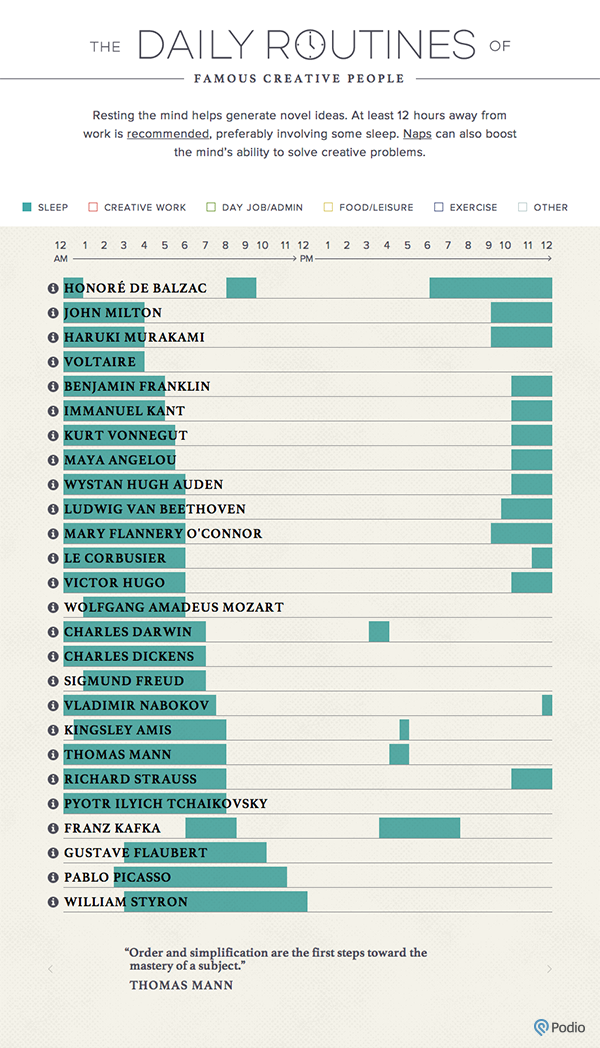The Independent's journalism is supported by our readers. When you purchase through links on our site, we may earn commission.
I had a 'sleep doctor' tell me how to structure my entire day — and I've never felt more energised

Your support helps us to tell the story
From reproductive rights to climate change to Big Tech, The Independent is on the ground when the story is developing. Whether it's investigating the financials of Elon Musk's pro-Trump PAC or producing our latest documentary, 'The A Word', which shines a light on the American women fighting for reproductive rights, we know how important it is to parse out the facts from the messaging.
At such a critical moment in US history, we need reporters on the ground. Your donation allows us to keep sending journalists to speak to both sides of the story.
The Independent is trusted by Americans across the entire political spectrum. And unlike many other quality news outlets, we choose not to lock Americans out of our reporting and analysis with paywalls. We believe quality journalism should be available to everyone, paid for by those who can afford it.
Your support makes all the difference.I am, as you probably are too, a sucker for "daily routine" stories.
There's something weirdly satisfying about knowing what time someone else wakes up, what time they eat an apple, and how long they wait between eating the apple and working out -- especially if that someone is famous and successful.
Forget working hard and displaying grit -- I'm going to eat an apple every day at 4 p.m. and be famous and successful, too! It's the ultimate life hack.
And so when I heard about Dr. Michael Breus' new book, "The Power of When," in which he helps readers figure out their biological predisposition to be a morning person, evening person, or somewhere in between, and then figure out their ideal daily routine based on that predisposition, I was intrigued.
Breus is a clinical psychologist and sleep expert; he calls himself the "sleep doctor." When we spoke by phone in July -- Breus has a practice in Los Angeles -- he told me that he first started researching this topic when he noticed that his treatments for insomnia weren't working on a select group of his patients.
"What I realized," he said, "is that my patients didn't have insomnia -- it turns out they were night owls. At least some of them, anyway."
On weekends and vacations, Breus said, these night owls would stay up until about 1 a.m. and wake up around 8 or 9 a.m. the next day. They'd feel great. But come Monday, they'd start feeling lousy again.
"I realized that their internal chronorhythm had shifted," Breus said, using the scientific term for your body's internal clock.
That realization prompted Breus to consider whether there were other groups of people who weren't simply insomniacs -- but who were struggling because their chronorhythms were different from most people's.
Research led Breus to come up with four chronotypes -- or four types of preferences for morningness and eveningness.
Breus isn't the first person to study -- or write a book about -- the science of chronotypes. Most notably, in 2012, the German chronobiologist Till Roenneberg published "Internal Time," in which he popularized the term "social jet lag" to describe the difference between people's sleep schedules on workdays and free days, a.k.a. the difference between how they'd like to structure their days and how they have to structure their days in order not to lose their jobs and friends.
In "The Power of When," Breus makes this research accessible by helping readers figure out which "animal" they are: bear, wolf, lion, or dolphin. (You can also take a diagnostic quiz on his website.) Each animal corresponds to a different chronotype.
About 10% of the population are dolphins: light sleepers, who frequently get diagnosed with insomnia. Another 15 to 20% are lions: classic morning people. Still another 15 to 20% are wolves, who prefer staying up late.
I, as it turns out, am a bear, a chronotype Breus says I share with about half the general population. That means I'm generally a good sleeper; my internal body clock tracks the rise and fall of the sun.
Breus agreed to help me create a daily routine fit for a bear -- one that would leave me less tired and more productive than I am now. Over the past two months I've been trying to adopt this new schedule and documenting the effects.
Here's the daily routine Breus outlined for me -- and what happened when I tried to follow it. Keep in mind that this schedule won't work for everyone, especially if you have a different chronotype.
7-7:30 a.m.: Wake up
For the past four years, I've been practicing the same morning routine. I wake up to a 6:30 a.m. alarm and immediately brew a cup of black tea; I spend the next hour or so reading the news before showering and getting ready to leave for work.
The idea behind waking up relatively early is that I allow myself some quiet "me" time before emails and phone calls and the general demands of the day begin.
But the problem here, Breus told me, is twofold. The first is that I'm caffeinating way too early. (I'll say more on that topic later.)
The second is that I'm waking up slightly too early. I told Breus that, on weekends, I typically wake up naturally around 7:30 a.m. and he suggested that I listen to my body and try setting my alarm for between 7 and 7:30 on weekdays, too. Eventually, he said, I wouldn't need the alarm anymore.
I took Breus' advice and reset my alarm for 7 -- but somehow I rarely woke up before it went off, and often I was jolted out of a deep sleep. I suspect that 7:30 is closer to my ideal wake-up time -- but given that I still enjoy my "me" hour in the morning, I figured I'd start the workday too late if I woke up then.

7:30-8:30 a.m.: Hydrate, shower, and fuel up
Breus pointed out that I was caffeinating way too early. Ideally, he said, if bears are going to caffeinate, they should do so at least 90 minutes after waking up. That's when levels of the stress hormone cortisol -- which helps keep you alert -- will start naturally decreasing.
Breus told me I'd essentially been using caffeine to stop my body's production of the sleep hormone melatonin. It'll turn off on its own around 7, he told me -- no need to do it artificially.
What's more, Breus explained that caffeinated beverages are diuretics -- and when we sleep we breathe out about a liter of water, meaning we already wake up dehydrated.
Immediately after waking up, Breus said, I should take five deep breaths -- something that rarely happened, given that I was usually racing to turn off my alarm.
Next, he advised drinking a full glass of water while standing in front of the window so that I'm simultaneously hydrating and absorbing sunlight, which naturally curbs the production of melatonin. These directions I always followed, and it did generally help me feel more awake.
Even my hot showers had to go under Breus' new regimen. Cool showers are invigorating because they lower your body temperature, he explained. It helps, too, to listen to upbeat music while bathing -- I chose Spotify's pop playlist -- because it boosts your mood.
Finally, Breus advised eating a protein-rich breakfast within 60 minutes of waking; carbs tend to make you feel more sleepy. I stuck with yogurt and granola, and generally didn't eat breakfast until about two hours of waking up, when I was already settled at work.
The key here, Breus told me, is consistency. Even on weekends you should maintain the same morning routine, so as not to throw off your body.
9:30-10 a.m.: Caffeinate
By far the most impressive change I saw during my new daily routine was that I no longer needed that cup of black tea first thing in the morning. In fact, I barely needed caffeine at all.
Now, I drink a cup of green tea (which has considerably less caffeine) at around 9:45 a.m., at the office. Anything else makes me jittery.
And though I was at first skeptical that the green tea would help me power through the rest of the day, I'm in fact more energized than I used to be. Most notably, I don't feel the need for a second cup of black tea around 3 p.m., which I often used to.
Breus said skipping the first-thing-in-the-morning coffee (or tea) is probably the change his clients are most resistant to making. But if my experience is any indication, it's not only possible to survive the workday without it once you get accustomed to the change -- it's easier.
10 a.m.-2 p.m.: Do research and focused work
Breus explained that bears' intellectual capabilities peak between 10 and 2. For me, that means I should work on research projects during this time, as opposed to writing or brainstorming, which require more creative juice.
As for a lunch break, Breus writes in the book that it's best for bears to walk for half an hour, then eat, and then walk for another 10 minutes.
I'll admit that I effectively botched this part of the experiment. I rarely organized my workday according to my chronorhythm, instead working on whatever was most pressing: research, writing, or a meeting. It's something I'm still experimenting with.
2:30-3 p.m.: Nap or meditate

If you're going to take a nap, do it at 2 p.m. and only sleep for 20 minutes, or else you'll wake up feeling even more sluggish.
For those who don't have nap rooms at work, Breus writes that another option is to "power down mentally" for 10 minutes, either through deep breathing or meditation.
I almost always skipped this step, instead choosing to plow through the afternoons without stopping to take much of a physical or mental break.
3-6 p.m.: Interact with others
For bears, the remainder of the workday is best spent holding meetings, writing emails, and making phone calls. Since the majority of workers are bears, Breus writes that they're likely most agreeable during this time, which means it's a great opportunity to present new ideas to your colleagues.
Around 4 p.m., bears should have a mostly-carbs snack: I typically chose something from BI's selection of trail mix and granola bars.
6 p.m.: Exercise
According to Breus, bears hit their physical peak, in terms of lung capacity and heart rate, at 6 p.m. I typically waited to exercise until 7 p.m., since I usually leave work around 6.
Alternatively, Breus writes, this is also a great time for happy hour, since bears' alcohol tolerance is high, and there are still a few hours left before bedtime.
7:30-8 p.m.: Eat dinner
Breus recommends eating about three hours before going to sleep; otherwise your body will send blood and heat to your core, which encourages the body to stay awake.
I usually ate around 8:30 p.m., right when I came back from the gym or another after-work activity.
9-11 p.m.: Brainstorm and power down
A bear's peak creative periods, Breus told me, are between 6 and 8 a.m. and between 9 and 11 p.m. These are the times when new ideas come easily -- especially, Breus writes, if you're doing something relaxing like sitting in the bathtub, reading, or playing a game.
If you're going to bed around 11 p.m., which I typically do, Breus also recommends using the hour between 10 and 11 p.m. for a "power-down hour," meaning you put away all your digital devices.
He told me that's not solely because of the blue light emitted from those devices, which can interfere with sleep, but also because there's so much emotionally stimulating content on social media that can keep you awake at night.
This was by far the hardest part of the routine for me to comply with. I have a habit of spending 15 (okay, 30) minutes between eating dinner and going to bed mindlessly scrolling through Facebook and Instagram, and I failed to ditch it during the experiment. Again, it's something I'll continue to work on.
Towards the end of the power-down hour, there's no harm in watching TV, Breus told me, contrary to the sleep advice you may have heard before. If you find it relaxing, there's no need to deprive yourself.
And if you prefer reading a book in bed (I do), then make sure you get a book light so the bright light from a lamp on your nightstand doesn't trick your brain into thinking it's morning.
Putting it all together

Once you make these changes, Breus said it should take about seven to 10 days to see meaningful results. And that was pretty much my experience weaning myself off the morning black tea.
But he's quick to note that if you can't institute all of these changes at once, then do what you can. It's certainly better than doing nothing at all.
That was heartening to hear, because my general belief is that adhering too closely to too many life "rules" can be suffocating and can defeat the whole purpose of the intervention, which is to make you a healthier, happier person.
At the same time, I've become somewhat of a chronotype-proselytizer, urging friends and family to figure out their biological predispositions and adjust their daily schedules accordingly. (When I stayed overnight at my parents' house during the experiment, I delivered an 8 a.m. lecture about why they shouldn't drink coffee right after waking up -- they were not pleased.)
Ultimately, my greatest takeaway -- and the reason I'm now so fascinated with chronobiology -- is that it's empowering.
Take a few minutes to reflect on your daily energy levels or do a little experimentation to figure out how much sleep you need and you've potentially just unlocked one door to a more fulfilling life, at work and at home. It's certainly not a panacea for every problem you've got, but it's a start.
Read more:
• This chart is easy to interpret: It says we're screwed
• How Uber became the world's most valuable startup
• These 4 things could trigger the next crisis in Europe
Read the original article on Business Insider UK. © 2016. Follow Business Insider UK on Twitter.
Join our commenting forum
Join thought-provoking conversations, follow other Independent readers and see their replies
Comments